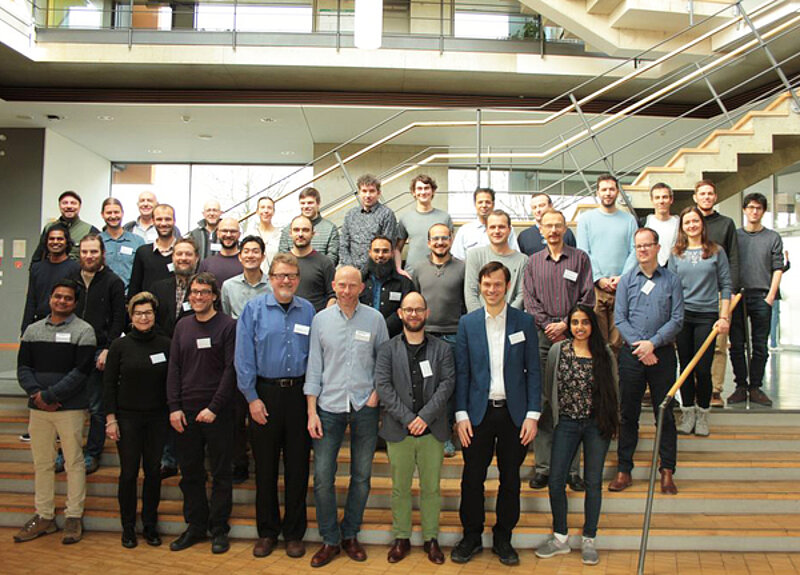In order to understand complex biological processes such as the development of organs and tissues (so-called morphogenesis), a combination of several areas of science is required that is rarely found today. The inaugural workshop "Image-based Modeling and Simulation of Morphogenesis" at the Max Planck Institute for the Physics of Complex Systems (MPI-PKS) addressed this need and brought together leading experts in biophysics, life sciences and scientific computing in Dresden.
From 13th to 15th March 2019, approximately 40 biologists, computer scientists and physicists from all over the world met at the MPI-PKS to jointly discuss how computer modeling and bioimage analysis can contribute to understanding morphogenesis. Participants were researchers working at the molecular, cellular, tissue, and whole-organism scale using both theoretical and experimental approaches. The workshop thus also falls within the core area of the recently approved Cluster of Excellence "Physics of Life" at the TU Dresden (TUD), which aims to uncover the secret of life across disciplines.
The invited speakers presented exciting work covering a wide span from theory to experiment. Curiosity was raised about which biological questions can already be answered with computational models, and which questions are only now being begun to be asked. The workshop also saw impressive presentations by graduate students and junior scientists that were selected from the submitted abstracts, including young researchers from the ELBE Postdoctoral Fellows Program and the International Max Planck Research School for Cell, Developmental and Systems Biology (IMPRS CellDevoSys). All participants actively engaged in cross-disciplinary discussions often continuing in the evenings, which greatly facilitated a sense of community embracing everyone from graduate student to keynote speaker.
Ivo Sbalzarini, Research Group Leader at the MPI-CBG and the Center for Systems Biology Dresden, and Professor at the Faculty of Computer Science at the TUD was one of the two scientific coordinators, along with Kyle Harrington, Assistant Professor at the University of Idaho, USA. Ivo says, "I'm thrilled by the positive feedback we received and saw many new ideas and collaborations being established during the meeting. The workshop helped to unify researchers working across different scales, disciplines, and methodologies and to nucleate a new community for image-based modeling in developmental biology."
The next edition of the IMSM meeting will take place in 2021 and multiple attendees already expressed interest in hosting it. So stay tuned and watch out!
